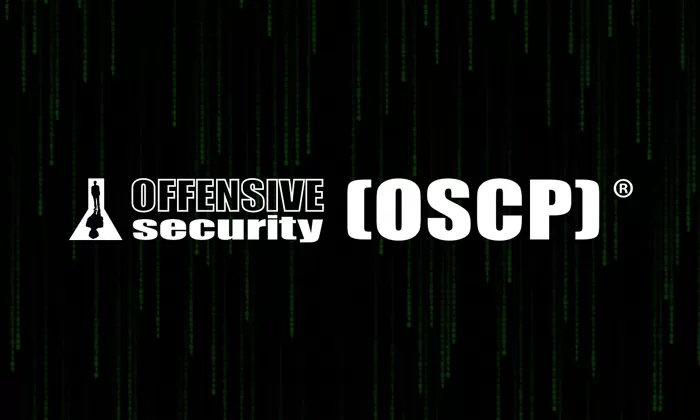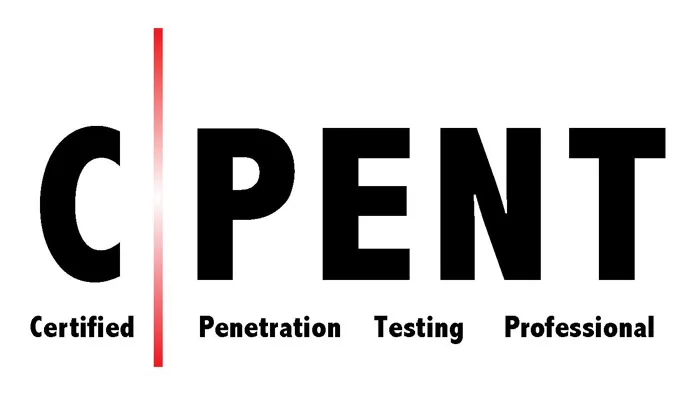CPENT vs OSCP: Aspiring professionals in the field of cybersecurity often find themselves comparing certifications like CPENT (Certified Penetration Testing Professional) and OSCP (Offensive Security Certified Professional). In this article, we will explore the differences between CPENT and OSCP, shed light on the concepts of penetration testing and CEH certification, and help you determine the most efficient path to a cyber security career.
Understanding Penetration Testing:
Penetration testing is a proactive approach to identifying vulnerabilities in computer systems, networks, and applications. It involves simulating real-world attacks to assess security defenses and provide actionable recommendations. Penetration testers, also known as ethical hackers, use their skills to identify and exploit vulnerabilities, ultimately helping organizations fortify their security measures.
clslearn offers you the best courses in the course of CPENT Penetration Testing Professional
Exploring CEH Certification:
CEH (Certified Ethical Hacker) is a widely recognized certification that focuses on ethical hacking techniques and methodologies. It covers various aspects of hacking, including network scanning, system vulnerabilities, malware analysis, social engineering, and more. CEH provides a comprehensive foundation in ethical hacking but does not specifically focus on hands-on penetration testing.
Understanding OSCP Certification:

OSCP (Offensive Security Certified Professional) is an industry-leading certification offered by Offensive Security. It emphasizes practical, hands-on penetration testing skills. OSCP certification requires candidates to complete a challenging 24-hour hands-on exam, where they must demonstrate their ability to identify vulnerabilities, exploit systems, and document their findings. OSCP is highly regarded for its rigorous nature and practical approach to penetration testing.
CPENT vs OSCP: Choosing the Right Path:
CPENT and OSCP have distinct differences in their approaches and requirements. CPENT, offered by E.LearnSecurity, is a newer certification that focuses on practical penetration testing skills. It includes both web application and network penetration testing, emphasizing real-world scenarios and hands-on experience. On the other hand, OSCP is renowned for its strict exam and practical approach, making it a preferred choice for many employers.
The shortest path to a cyber security certification depends on your career goals and the level of hands-on experience you possess. If you are starting from scratch or have limited experience, pursuing CEH certification as a foundational step can be beneficial. From there, you can choose to specialize in penetration testing by pursuing CPENT or take the more challenging route of OSCP if you are looking to establish yourself as an expert penetration tester.
Get to know about : 10 TOP OFFENSIVE SECURITY TOOLS
Some additional points to expand on the topic of CPENT vs OSCP and the path to a career as a certified ethical hacker:
CPENT Certification:
CPENT (Certified Penetration Testing Professional) is a certification offered by
E.LearnSecurity. It is designed to validate the practical skills of penetration testers. CPENT focuses on real-world scenarios and hands-on experience, covering both web application and network penetration testing. The certification exam assesses candidates’ ability to identify vulnerabilities, exploit systems, and provide detailed reports on their findings. CPENT is gaining recognition in the industry as a practical and comprehensive certification for penetration testers.
OSCP Certification:
OSCP (Offensive Security Certified Professional) is a highly regarded certification offered by Offensive Security. It is known for its rigorous and practical approach to penetration testing. The OSCP certification exam is a 24-hour hands-on challenge where candidates must demonstrate their ability to find and exploit vulnerabilities in a controlled environment. OSCP emphasizes problem-solving skills, persistence, and a deep understanding of penetration testing methodologies. OSCP holders are often sought after by employers due to the certification’s reputation for producing skilled and competent penetration testers.
Career Path and Experience:
The path to a career as a certified ethical hacker may vary depending on an individual’s background and experience level. If you are new to the field or have limited experience, starting with foundational certifications like CEH (Certified Ethical Hacker) can provide a solid introduction to ethical hacking concepts and techniques. CEH covers a broad range of topics and can serve as a stepping stone towards more specialized certifications like CPENT or OSCP.
Hands-on Experience and Skill Development:
Both CPENT and OSCP place a strong emphasis on hands-on experience. To succeed in these certifications, individuals should invest time in practical exercises, lab environments, and real-world scenarios. Engaging in Capture The Flag (CTF) competitions, participating in bug bounty programs, and working on personal penetration testing projects can help develop practical skills and demonstrate proficiency to potential employers.
Continuous Learning and Professional Development:
The field of cybersecurity is constantly evolving, and professionals must stay updated with the latest threats, vulnerabilities, and techniques. Pursuing additional certifications, such as OSCE (Offensive Security Certified Expert) or CREST Certified Tester, can further enhance your expertise and credibility in the field. Additionally, engaging in industry conferences, attending workshops, and joining professional communities can provide valuable networking opportunities and facilitate continuous learning.
Practical Application and Ethical Considerations:
While certifications like CPENT and OSCP focus on ethical hacking and penetration testing, it is crucial to remember the importance of ethical conduct and responsible disclosure. Ethical hackers must always adhere to legal and ethical guidelines, obtain proper authorization for testing, and prioritize the security and privacy of the systems they assess. Understanding ethical considerations and professional conduct is essential for a successful and ethical career as a certified ethical hacker.
By pursuing certifications like CPENT or OSCP and continually expanding your knowledge and skills, you can establish yourself as a competent and sought-after certified ethical hacker. Remember to focus on practical experience, continuous learning, and ethical conduct to excel in the field of cybersecurity.
Get to know about ENHANCING CYBERSECURITY WITH SOC AS A SERVICE (SOCAAS)
More information about the CEH (Certified Ethical Hacker) certification and how it compares to CPENT and OSCP:
CEH Certification:
CEH is a globally recognized certification offered by the International Council of E-Commerce Consultants (EC-Council). It focuses on ethical hacking techniques and methodologies, covering a wide range of topics related to hacking, security controls, and countermeasures. CEH provides a comprehensive foundation in ethical hacking, including network scanning, system vulnerabilities, malware analysis, social engineering, and more. The certification validates the knowledge and skills required to identify vulnerabilities and protect against potential threats.
Comparison with CPENT:

CPENT (Certified Penetration Testing Professional) and CEH have some similarities but also key differences. While both certifications cover ethical hacking and penetration testing, their approach and focus differ. CEH provides a broad understanding of hacking techniques and tools, including theory and concepts, while CPENT emphasizes practical, hands-on experience in web application and network penetration testing. CPENT is often regarded as more practical and comprehensive in terms of real-world scenarios and hands-on skills.
Comparison with OSCP:
When comparing CEH with OSCP (Offensive Security Certified Professional), there are notable differences in their methodologies and exam structure. CEH is more theory-focused, covering a wide array of hacking techniques and knowledge areas. It includes multiple-choice questions and does not have a hands-on practical exam component. OSCP, on the other hand, is highly regarded for its practical approach. It requires candidates to complete a rigorous 24-hour hands-on exam, demonstrating their ability to identify vulnerabilities, exploit systems, and document their findings. OSCP is known for its emphasis on problem-solving skills and practical penetration testing expertise.
Focus and Career Paths:
CEH is often considered a good starting point for individuals new to the field of cybersecurity. It provides a comprehensive overview of ethical hacking concepts and techniques, making it suitable for those seeking a broad understanding of the field. CEH certification is valuable for roles such as security analysts, auditors, and entry-level ethical hackers.
CPENT and OSCP, on the other hand, are more focused on practical penetration testing skills. They are specifically designed for professionals aiming to become skilled penetration testers. CPENT and OSCP certifications are highly regarded by employers seeking individuals with hands-on experience and the ability to identify and exploit vulnerabilities in real-world scenarios.
Certification Difficulty and Recognition:
CEH is generally considered less challenging compared to CPENT and OSCP. The CEH exam consists of multiple-choice questions, which some individuals may find relatively easier compared to the practical challenges of CPENT and the demanding 24-hour practical exam of OSCP.
While CEH is widely recognized and accepted in the industry, CPENT and OSCP hold a reputation for their practical approach and are highly regarded by professionals and organizations seeking skilled penetration testers. CPENT and OSCP certifications are often considered more valuable and respected due to their emphasis on hands-on skills and practical knowledge.
When considering which certification is right for you, it is essential to assess your career goals, level of experience, and preferred learning style. CEH provides a broad foundation, while CPENT and OSCP focus on practical penetration testing skills. Choosing the right certification depends on your desired career path and the level of hands-on experience you wish to acquire.
Remember that certifications are just one aspect of a successful career in cybersecurity, and practical experience, continuous learning, and ethical conduct are equally important regardless of the certification you pursue.

Conclusion:
A career in cyber security requires a solid foundation in ethical hacking and penetration testing. While CEH provides a comprehensive understanding of hacking techniques, CPENT and OSCP certifications focus specifically on hands-on penetration testing skills. Assess your goals, experience level, and learning preferences to determine the most suitable path. Whether you choose CPENT or OSCP, both certifications hold immense value in the industry and can open doors to exciting career opportunities as a certified ethical hacker.
























